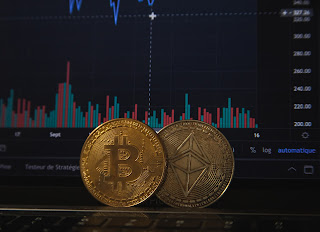Due to a significant price increase over the last week, Luna, Terra network's native token, has become the second-largest staked asset in terms of staked value. Luna is currently worth $30 billion and is staked across multiple platforms, eclipsing Ether, which had a little more than $27.5 billion in staked value at the time of writing.
Luna is one of the Terra blockchain's two tokens. To facilitate global payment systems, the network also employs the UST token (Terra USD), a stablecoin pegged to the US dollar.
The process of pledging crypto assets to the blockchain in order to become a transaction validator (or node) on the network is known as staking. Every time a block of transactions is authenticated and added to the chain, the blockchain rewards nodes in its native token. Staking is only possible on blockchains that use the 'consensus mechanism' of Proof-of-Stake (PoS).
According to data obtained from Defi Llama, a leading Total Value Locked (TVL) aggregator in the decentralized finance (DeFi) space, the Terra network has $23.53 billion in assets locked in. The total value of crypto assets locked in any DeFi protocol is referred to as TVL. Terra's TVL is still significantly less than Ethereum's $113.34 billion. However, Luna is not only performing well in the DeFi space, but also on the price charts.
Staking LUNA on the Terra Protocol
Luna's blockchain runs smart contracts and validates transactions using a delegated proof-of-stake consensus method.
As a result, holders who want to stake LUNA have two choices:
Make yourself a validator. Choose another existing validator to whom they can delegate their coins.
A "validator" is someone who assists in the verification and proposal of new blocks of transaction data. A person or group of people is required to run computing equipment of a certain spec virtually nonstop with Luna. It's so competitive, in fact, that only the top 130 validators are allowed to verify and add new blocks to the Terra blockchain. That rule is unique to the LUNA staking ecosystem and is not found in other staking assets.
Validators receive a commission fee from network stakeholders in exchange for their efforts. The top five validators charge a 5-10% commission fee for their services, which must be considered when calculating delegated staking returns.
Validators can delegate funds to other luna holders in order to stake them. The larger the fund, also known as the staking pool, the more likely it is that the validator and his group of delegators will propose a block and pocket the reward from the transaction fee.
Delegation staking is much more accessible to the majority of token holders looking to earn interest on their assets. Any LUNA holder can delegate his coins to a validator without having to meet the stringent validator requirements and still earn rewards.
Slashing is a significant risk for anyone who stakes LUNA (whether validator or delegator). If the validator makes a mistake during the consensus process, such as missing a vote, experiencing a network outage, or being offline for an extended period of time, he will be penalized. This can result in either losing a small portion of the staked funds, including the delegators' stake or being completely excluded from consensus voting, implying that no rewards can be earned.
Delegating LUNA to a Validator
If you want to delegate your LUNA to another person or group of people, the Terra Station Wallet – the official wallet software for Terra assets – is an easy option.
Navigate to Terra Station.
Install the browser extension or desktop application by clicking Connect.
Enter a username and password to create a new wallet (keep them secure).
Transfer LUNA tokens from an exchange to your Terra Station Wallet.
Go to the staking tab once you have the tokens in your wallet.
Stake your tokens and choose a validator to delegate them.
How to Become a Terra Validator
In comparison to the vast majority of other staking-based cryptocurrencies, the barrier to becoming a Terra network validator is quite high. Only the validators with the top 130 LUNA stakes are permitted to participate in the validation process.
Where can you purchase LUNA?
As LUNA drew the attention of investors, an increasing number of exchanges began to include the token in their offerings. As of this writing, users can purchase LUNA on the majority of major exchanges, including Bitfinex, Binance, FTX, Gemini, Huobi, Kraken, KuCoin.









